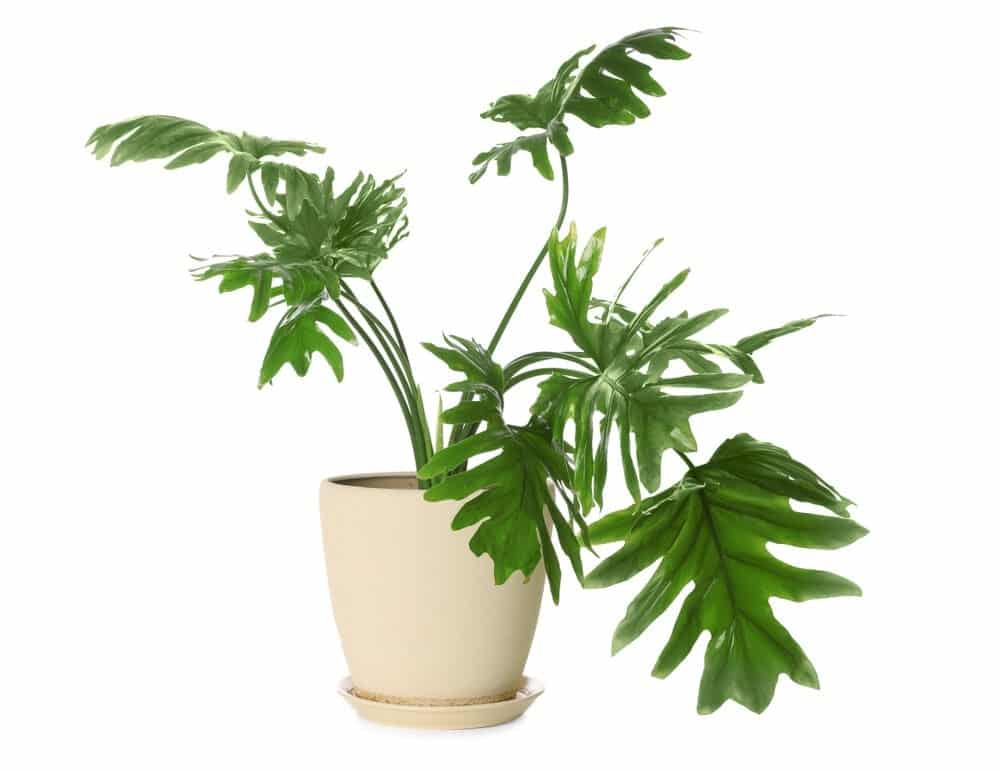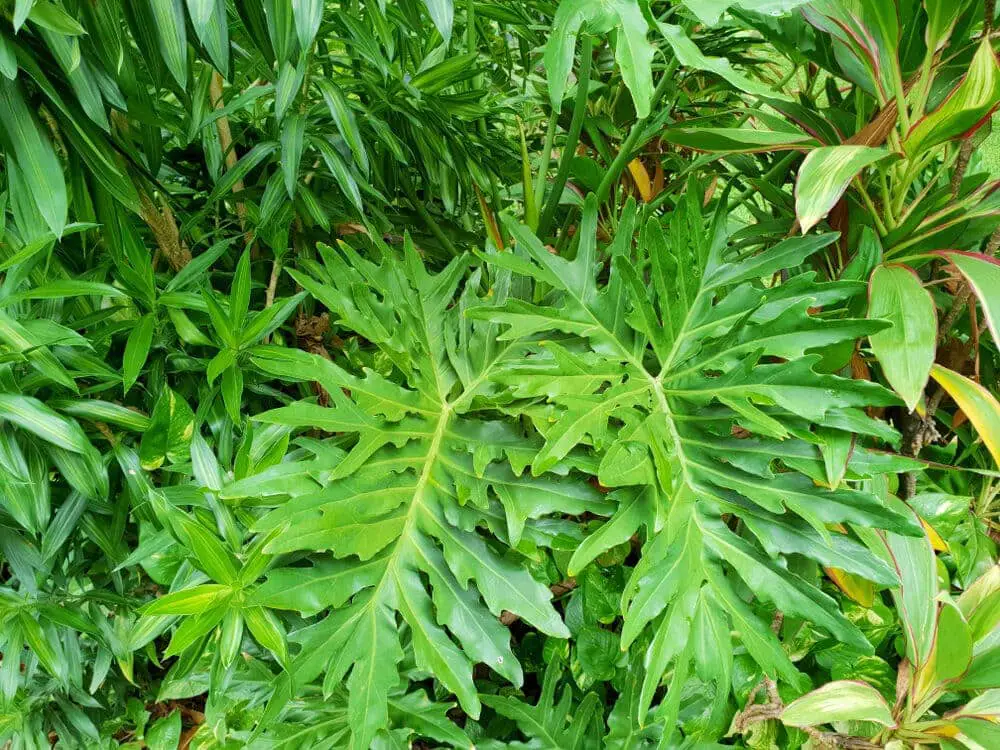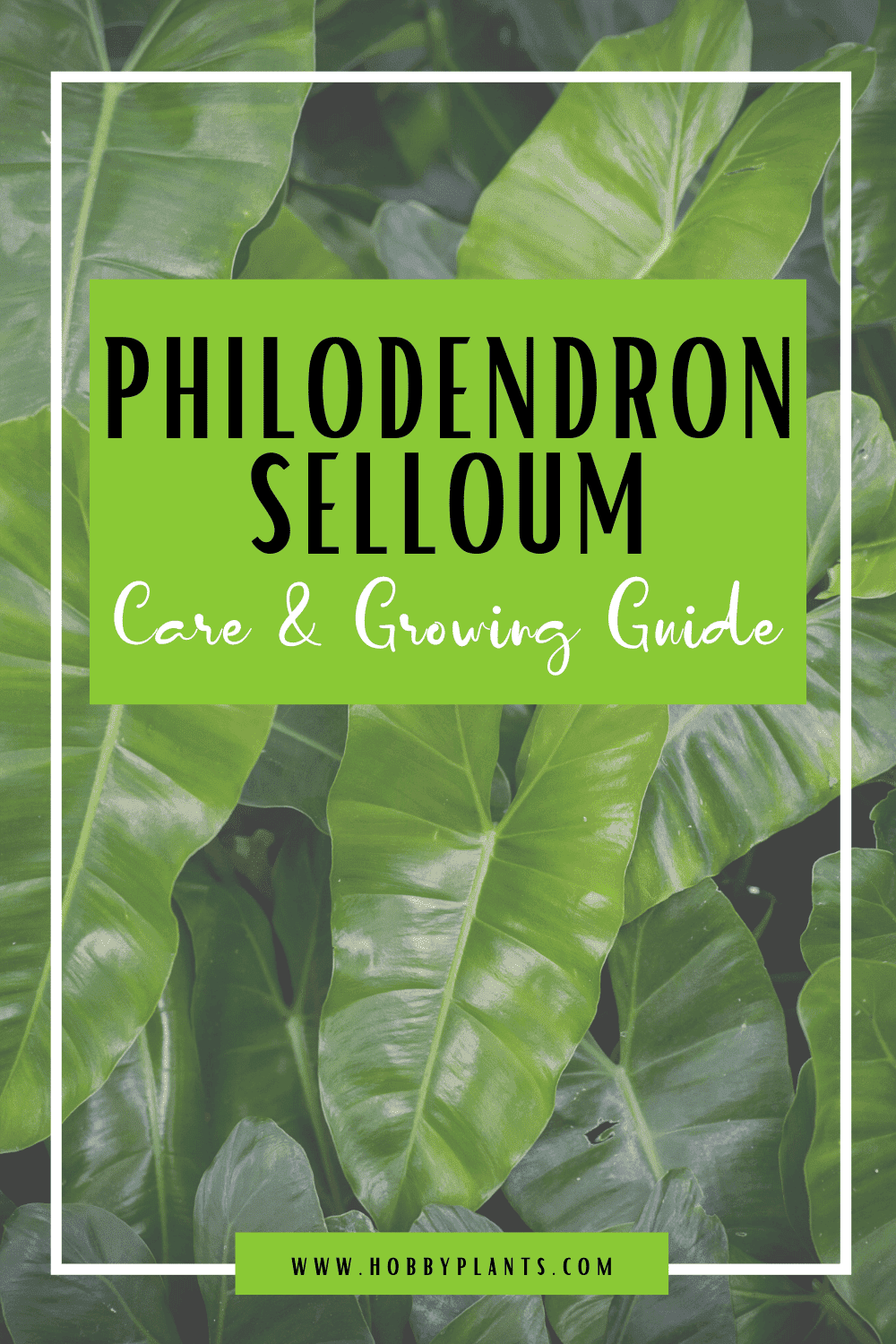Philodendron Selloum is a popular floor plant that has a reputation as being very easy to care for.
It doesn’t require a lot of attention and can enhance the look of anyone’s home interior. If you want a plant that is attractive and unique looking, this one is right up your alley.
Philodendron Selloum Care & Growing Guide
1. Light Requirement
You will need to provide this plant with bright but indirect light on a daily basis. While partial shade is an option, the leaves of the plant won’t be quite as bright and vibrant. It is also possible to keep it in bright direct light, but it will require a higher level of maintenance.
If you choose to keep your plant in very bright light, you will have to provide it with lots of fertilizer and moisture on a consistent basis. Before you decide where in your home to put this plant, you will need to take this into consideration.
2. Water
While you don’t need to give this plant a lot of water, it also cannot go a long time without water. It is important that you keep the soil decently moist but not drenched. You should wait until the soil feels somewhat dry before watering.
It is crucial for these plants to be kept in containers with adequate drainage. The drainage holes will allow the plant to get rid of excess moisture, thereby preventing root rot. Do not allow the plant to sit in water. This is a crucial component of keeping this plant as healthy as possible.
3. Climate
The philodendron selloum plant can be grown in USDA hardiness zones of 9 and above. These plants are capable of being grown in tropical or subtropical climates. You can even grow them in a Mediterranean climate without much effort.
4. Soil
You will need to grow this plant in rich soil that is on the alkaline side. The acidity of the soil will play a major role in determining how quickly it grows and how healthy it becomes. It is important to avoid excess salt in the soil, as this can damage the tips of the leaves.
5. Temperature
These plants do best when they are kept within a temperature range of 55 to 90 degrees Fahrenheit. Nighttime temperatures should not drop below 65 or go above 70. Daytime temperatures should not go below 75 or exceed 85 degrees.
You don’t want it to get any cooler than 60 degrees Fahrenheit at night, as your plant could quickly sustain irreversible damage. The proper temperature is very important for these plants to say the least.

6. Repotting
Repotting should be done every 18 to 24 months with these plants. It is a good idea to use a container that is two to four inches larger across. This will allow the roots to spread out so they don’t get tangled up, which can cause all sorts of problems.
7. Speed of Growth
The best way to grow this plant as quickly as possible is by keeping it in a shady, moist area. Under ideal conditions, this plant can grow fairly quickly.
8. Height and Spread
The maximum height of this plant in 10 feet, and it can get up to 7 feet wide. If you grow this plant outside, it should have adequate space to spread out without interfering with other nearby plants.
9. Flowers
It takes anywhere from 15 to 20 years for a philodendron selloum to bloom. It is very difficult for these plants to produce any flowers at all when they have been kept indoors all the time.
10. Trimming
When you are getting ready to prune this plant, it is important that you water is the day before. You’ll simply need to trim the tips of the plant back as they grow to whichever length you want. Frequent trimming is not typically necessary with these plants, but it depends on the conditions they are kept in.

Is the Philodendron selloum plant poisonous?
This plant is very toxic to dogs, so you’ll need to be careful about keeping it around if you have one of these pets. The most common signs your dog has ingested this plant include coughing, excess drooling, and pawing at their face. It is important that you get them medical attention right away.
How to get Philodendron selloum plants to flower
The best way to get this plant to flower is to keep it outside in a shady spot that receives bright light. It is much more difficult to get this plant to bloom when you keep it inside. Keep in mind that this plant reaches maturity at 15-20 years, so it cannot produce flowers before then.
Also read: Epiphyllum Plant Care & Growing Guide
Common Philodendron selloum plant diseases
Many of these plants develop bacterial infections, which results in dark green spots on the leaves. It is important that you cut these leaves off to stop the spread of the infection right away.
If you notice dark green or brown blotches on the leaves, it could be due to cold injury. This is why it’s so crucial that you keep this plant within the proper temperature range at all times.
More like this:
Conclusion
- The philodendron selloum plant does best when it is kept in bright but indirect sunlight.
- If you keep this plant inside, it should be placed by a window that receives bright sunlight, but not too close.
- Make sure that you wait until the soil the plant is in to become somewhat dry before watering it.
- These plants are prone to root rot, so you need to be careful about not over watering.
- You can grow this plant in a variety of climates, including tropical, sub-tropical, and Mediterranean.
- Repotting should be done every 18 to 24 months. Make sure that you transfer the plant into a container that is about two inches larger across.
- These plants do not bloom until they are at least 15 years old. If your plant has been kept indoors for most or all of its life, there’s a good chance it will never bloom.
- If you notice any dark green or brown spots on the leaves of this plant, prune them off immediately.

Victoria is the owner and main author of hobby plants. She loves spending her free time in her garden planting and taking care of her plants. Victoria hopes you enjoy the content here!
![Queen Of The Night Flower [Complete Plant Care Guide] Queen Of The Night Flower [Complete Plant Care Guide]](https://www.hobbyplants.com/wp-content/uploads/2022/07/queen-of-the-night-flower-300x158.jpg)
![Mother Of Thousands Plant [Complete Plant Care Guide] Mother Of Thousands Plant [Complete Plant Care Guide]](https://www.hobbyplants.com/wp-content/uploads/2022/07/mother-of-thousands-plant-300x158.jpg)
![How Often Should You Water Pothos? [Complete Care Guide] How Often Should You Water Pothos? [Complete Care Guide]](https://www.hobbyplants.com/wp-content/uploads/2022/07/how-often-to-water-pothos-300x158.jpg)
![Can Snake Plants Live Outside? [COMPLETE CARE GUIDE] Can Snake Plants Live Outside? [COMPLETE CARE GUIDE]](https://www.hobbyplants.com/wp-content/uploads/2022/08/can-snake-plants-live-outside-300x158.jpg)
![Majesty Palm Plant Care: [Complete Beginner's Guide] Majesty Palm Plant Care: [Complete Beginner's Guide]](https://www.hobbyplants.com/wp-content/uploads/2022/08/majesty-palm-care-300x158.jpg)
![Exotic Angel Plant Care: [Complete Beginner's Guide] Exotic Angel Plant Care: [Complete Beginner's Guide]](https://www.hobbyplants.com/wp-content/uploads/2022/08/exotic-angel-plant-care-300x158.jpg)
![Do Coleus Like Sun Or Shade: [Complete Care Guide] Do Coleus Like Sun Or Shade: [Complete Care Guide]](https://www.hobbyplants.com/wp-content/uploads/2022/08/coleus-sun-or-shade-300x158.jpg)
![Snow White Waffle Plant: [Complete Care Guide] Snow White Waffle Plant: [Complete Care Guide]](https://www.hobbyplants.com/wp-content/uploads/2022/08/snow-white-waffle-plant-300x158.jpg)
![Waffle Plant Care: [Complete Beginner's Guide] Waffle Plant Care: [Complete Beginner's Guide]](https://www.hobbyplants.com/wp-content/uploads/2022/08/waffle-plant-300x158.jpg)
![Bird Of Paradise Plant Care: [Complete Beginner's Guide] Bird Of Paradise Plant Care: [Complete Beginner's Guide]](https://www.hobbyplants.com/wp-content/uploads/2022/08/bird-of-paradise-plant-300x158.jpg)
![Purple Passion Plant Care: [Complete Beginner's Guide] Purple Passion Plant Care: [Complete Beginner's Guide]](https://www.hobbyplants.com/wp-content/uploads/2022/08/purple-passion-plant-care-300x158.jpg)
![China Doll Plant Care: [Complete Beginner's Guide] China Doll Plant Care: [Complete Beginner's Guide]](https://www.hobbyplants.com/wp-content/uploads/2022/09/china-doll-plant-care-300x158.jpg)